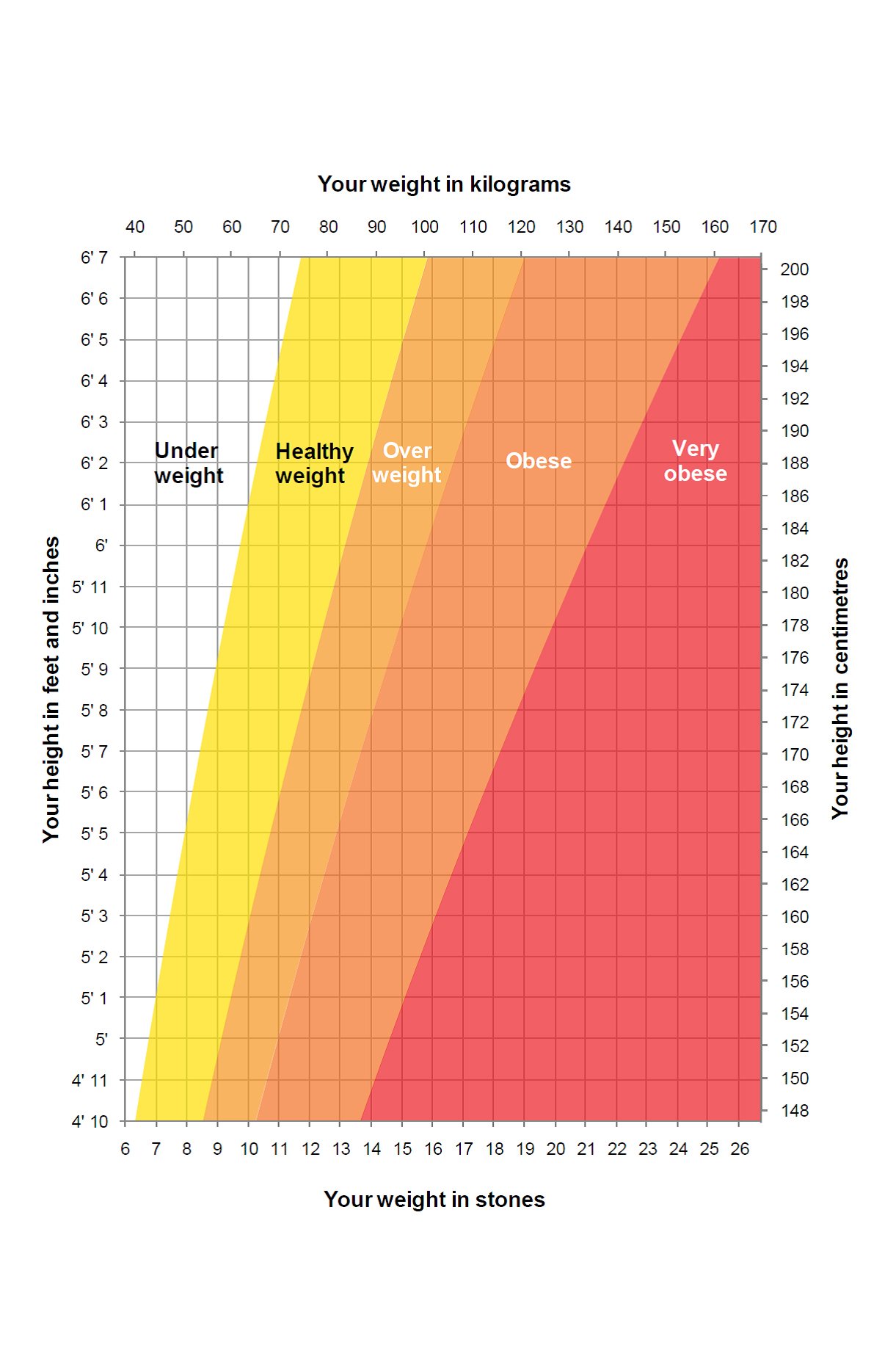Healthy body weight
Maintaining a healthy body weight is important for overall health. It can lower the risk of several diseases and certain cancers. It can also help improve personal lifestyle, aiding sleep, motivation, improving emotional health and playing a protective role against age related diseases.
What is a healthy weight?
You may see charts like the following used as a guide to indicate what may be an ideal weight for a specific height. You can also use free Body Mass Index (BMI) tools online, click here for a link.
Guidance on this page is not appropriate for those aged below 18 years of age; for child-appropriate guidance click here.
Please note that these charts provide a guide only and may not be suitable for those with a muscular build (muscles weighing more than fat, which can indicate an overweight or obese category which is not applicable).
What happens when a healthy weight is not maintained?
Underweight – Being underweight is unhealthy, and there are a number of associated issues including malnutrition, vitamin deficiencies, decreased immune function, fragile bones, fertility issues and even growth issues (especially in young children).
If your BMI is below 18.5 your weight may be too low.
If you are underweight, or you are concerned about someone who is, a GP or nurse practitioner can provide help and advice.
Overweight and obesity – Excess weight is unfortunately quite a common issue, and can lead to several detrimental and potentially life-threatening conditions; these include high blood pressure, heart disease, stroke, type 2 diabetes, breathing difficulties, cancers (including breast and bowel), and poor mental health.
For the majority of adults, a BMI of:
- 25 to 29.9 will indicate overweight
- 30 to 39.9 will indicate obesity
- 40 or above suggests severe obesity
As with the underweight advice above, your GP or nurse practitioner is a good source of advice and will be able to provide any onward referrals. You may also want to try a free diet and exercise plan, such as the NHS weight loss plan, or search for programs that are successful, such as the Couch to 5K exercise plan.
How to maintain a healthy weight
Diet and exercise are 2 key factors for maintaining a healthy weight.
A balanced diet, controlled by portion-size, teemed with regular exercise will ensure you get sufficient nutrients to build a healthy body whilst burning off unnecessary calories.
For those that struggle with maintaining a stable weight it is a good idea to consider a diet and exercise plan, perhaps with a weekly or monthly review, looking at long term goals and how these may be achieved. Goals need to be realistic, and considered part of a healthy change. It is important that those considering dramatic changes to their diet, particularly with special dietary needs or underlying medical condition, should ask a doctor or registered dietitian for advice.
Waist size also matters!
It is possible to have a healthy BMI and still have excess tummy fat. Too much fat around the stomach will leave you at the same risk of illness as those who are overweight.
Irrespective of your height or BMI, you should try to lose weight if your waist is:
- 94cm (37ins) or more for men
- 80cm (31.5ins) or more for women
To measure your waist:
- Find the bottom of your ribs and the top of your hips.
- Wrap a tape measure around your waist midway between these points.
- Breathe out normally before taking the measurement.
Please discuss your concerns about eating plans or weight loss with your GP on 20052441 who can refer you to the dietitians.


